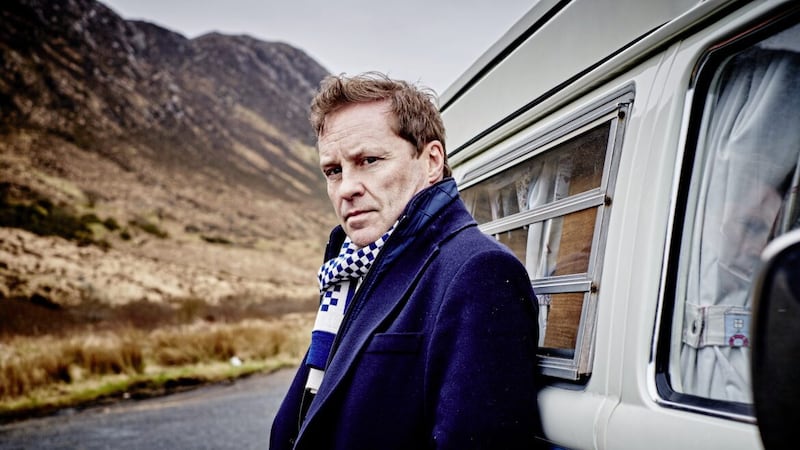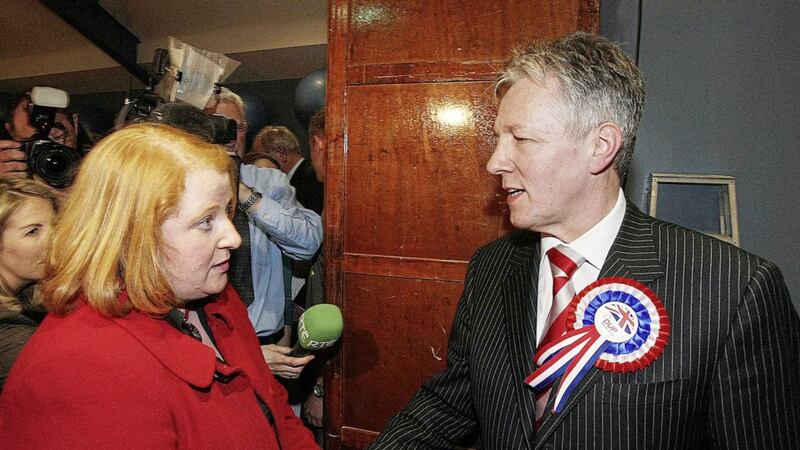It is perhaps appropriate that the most useful insight into the arguments about the protocol has been offered (unwittingly) by the man who played Fr Dougal McGuire in the comedy series Fr Ted.
Monaghan actor and comedian, Ardal O’Hanlon, recently presented an excellent television documentary (Ardal O’Hanlon, Tomb Raider) on how two rival academics attempted to use archaeological excavations in the 1930s to prove where Ireland’s first settlers came from.
Belfast-based Estyn Evans tried to show we came from Britain. In Dublin, Adolf Mahr, Director of Ireland’s National Museum and an Austrian member of the Nazi Party (yes, honestly) argued that they came directly from Europe, having by-passed Britain.
Their argument is not exactly a carbon copy of the current protocol row, but the two are certainly similar.
O’Hanlon pointed out that in the 1930s scientific research was often used for political purposes, but it could not happen today, because science is now independent of politics.
Guess what? Fast forward nearly a century and Ardal has the makings of a great follow-up programme. Today, almost everyone who offers an opinion on Brexit attempts to excavate selective data from the economic sub-soil to “prove” that the NI Protocol is good or bad.
As this column suggested immediately after the Brexit referendum, the way forward was to seek consensus between unionists and nationalists to get the best deal for the north, allowing it to trade with both the EU and the UK. No data was needed to support that.
However, instead of unity (so much for a united Ireland) both sides used Brexit, and later the protocol, as a political crutch. Sinn Féin supported the protocol because they saw it as a step towards a united Ireland. Unionists opposed it because they regarded it as breaking up the UK.
Both used economic arguments, the equivalent of O’Hanlon’s archaeological evidence.
Overnight we became a nation of economists, fluent in terms like business confidence, debt-equity ratio and commodity deflation. (I made the last one up, but it is as useful as many of the protocol arguments.)
With due respect, it is likely that most of those involved in economic squabbling have no idea what they are talking about. Professional economists are not always convincing either. If many universities still teach that the market will regulate itself, even though the banks had to be bailed out, then we cannot take all of economics seriously.
So the protocol arguments generally use selective data in a suspect science, which most of us do not understand, but which we fully support to “prove” the other side wrong. Welcome to the 1930s.
This madness reached new heights recently when a poll claimed majority support here for the protocol (even though it has not yet been enforced) as “proof” that it was something “good”. (A second poll would probably find that a majority here has never read the protocol.)
Brexit could have been a wonderful economic opportunity if local politicians had joined forces against London and Brussels and demanded access to both British and EU markets.
Instead they bowed to competing imperial interests between the UK and the EU and pursued the Irish tradition of fighting other people’s battles, using made-up economics.
So how, you ask, did the the archaeological dispute in the 1930s finish up? Evans later became Professor of Geography at Queen’s (he taught me and a fine teacher he was) and he produced several publications, including an excellent book on the Mournes. Adolf Mahr faded into obscurity in post-war Germany.
As for their argument, the truth is that settlers came here from both Britain and Europe. Evans was probably “more right”, because in the1970s it was discovered that the first arrivals here settled near Coleraine and probably came from Scotland.
Of course, they originally had to come from Europe to get to Scotland, so overall it was a pointless argument, fuelled more by political bias than common sense. Remind you of anything?









